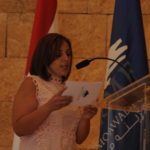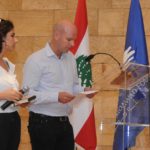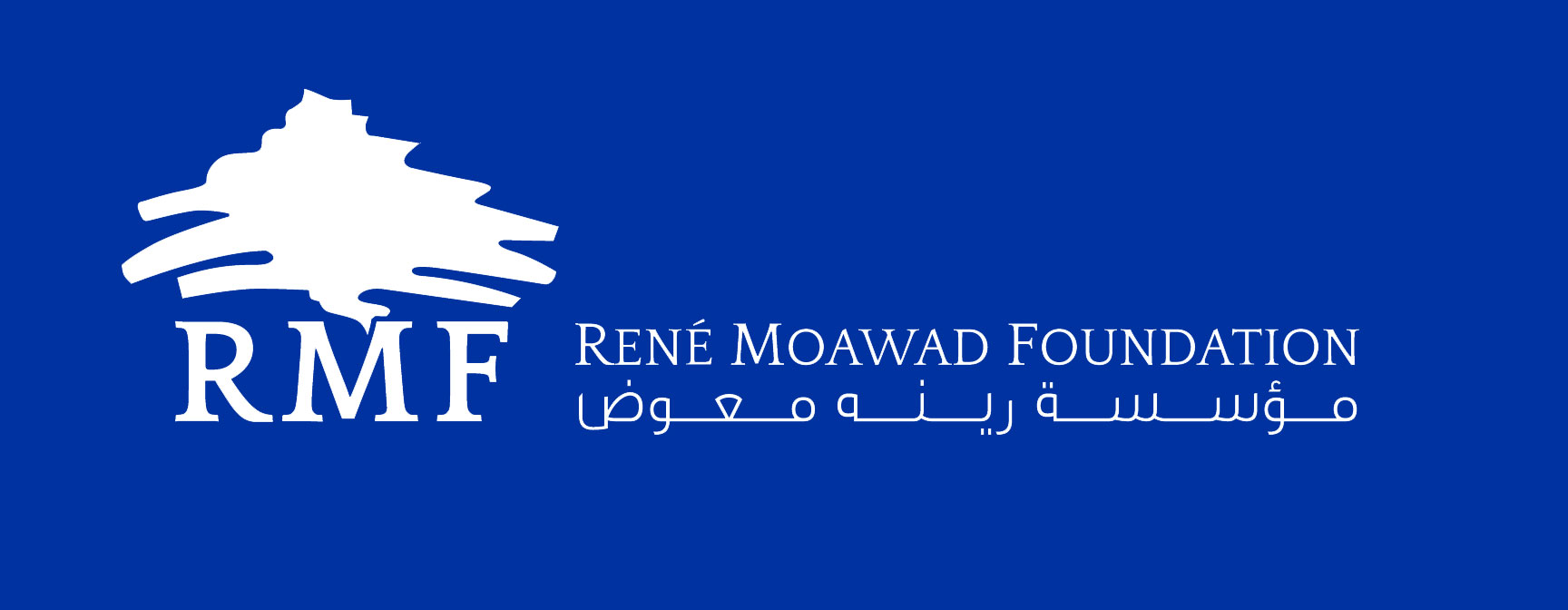The René Moawad Foundation organized a ceremony for one of its implemented projects that was funded by the Swedish Broadcast Foundation in cooperation with Plan International, under the title “Enhance access to education for Syria refugees and Lebanese adolescent girls (aged 12 – 17) in Minnieh–Dennieh, Tripoli and Zgharta Districts in Lebanon affected by the Syrian conflict through quality non-formal education opportunities”. The closing ceremony took place in the Antonine University Auditorium on Friday, June 29 in Mejdlaya and was attended by Plan International’s regional programme director Colin Lee and programme director Marianne Samaha as well as René Moawad Foundation’s general director Nabil Moawad and representatives from local and international associations.
The ceremony commenced with a documentary highlighting some of the success stories behind this project followed by a speech from René Moawad Foundation’s Dr. Hasna Tanios, stating: “If man was the maker of civilizations, then education and protection are the makers of man. And how about if this human being, regardless of his religion, language, race, and nationality was the core of the work of the René Moawad Foundation? And so we meet today to conclude this project, which has had a remarkable impact on more than 500 female beneficiaries, through their acquisition of life skills, and our presence today is indicative of its success. And it should be noted that this project has been implemented in several areas spanning Minnieh–Dennieh, Tripoli and Zgharta, with thousands of cases requiring support in all forms. Within this context, this project came about to provide a range of activities, such as linguistic and accounting support, educational support, awareness raising sessions on positive parenting and community initiatives, in addition to recreational activities. ”
On the other hand, Mr. Colin Lee talked about the Organization’s experience in Lebanon and about cooperating with the René Moawad Foundation by stating: “we work in Lebanon with local organizations such as René Moawad Foundation in all areas and with all individuals regardless of nationality, race, or religion, and with Lebanese and Syrian girls alike within this programme.” And he added: “There is no doubt that the Syrian crisis had an impact on Lebanon and on girls especially, therefore we chose to work in cooperation with the René Moawad Foundation in the North Lebanon region because we both share the same objectives and principles, particularly with regard to girls’ education and empowerment. It should be noted in this context that the implementation of this project was made possible thanks to the work of the René Moawad Foundation and its team and to the support and financing of the Swedish Broadcast Foundation.” And he concluded by saying, “I wish the girls present here today the best of luck in the near and distant future.”
The ceremony concluded with the distribution of certificates to the project’s beneficiaries, followed by a small reception.












